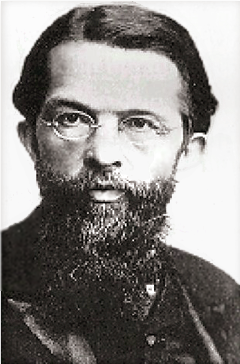Dissertation for the Doctorate in economics
Subjectivism and economics
The contribution of Popperian epistemology to the demarcation between economics and psychology

Abstract: After the marginal utility revolution, subjectivism becomes altogether the excuse and the justification of an alleged realism to describe individual action in economics. The reference to subjectivism introduces two major methodological issues: The first one is linked to the hypothetico-deductive or deductive status of the methodology of research, and involves therefore the questions linked to methodological individualism or to the rationality principle. The second problem is related to the hypothesis grounding individualistic patterns in economics, and the way other social sciences such as psychology can bring revisions on them. Psychologists are focused on introspection, and economists imported the notion into their field because they thought the notion had been scientifically explained. We can introduce critics against introspection: psychologists refer to this theory in order to preserve the richness of the description of the individuals, which does not permit economists to achieve at the universality of the explanations required by economics. In psychology, non-inductivist theories have been developped by specific schools. They are represented today by Popper's "objective knowledge" theory. One who accepts Popper's non-inductive (anti-psychologic and anti-psychologistic) thesis empowers the "individual" with a large epistemic density. At the same time, subjectivism becomes a theory running economic models without reference to extensive and singular features of an isolated individual life. The analysis of the maximisation hypothesis, or of the rationality principle, entails a demonstration of the strict necessity to add an institutional analysis of situations where individuals live, behave and decide, to genuine individualistic explanations. The Mengerian analysis focused on the economicity of goods. It has to be expanded into the economicity of institutions as considered and enforced by individuals.

Karl R. Popper
(1902-1994)
Photo: Steve Pyke
The dissertation is drafted in French.
JEL codes:
B13 (Neoclassical economics through 1925), B41 (Methodology), B53 (Austrian economics),
D83 (information, knowledge, uncertainty), D91 (micro-based behavioral economics)
B31: Carl Menger, Karl Popper
Carl Menger
(1840-1921)
- General introduction
- Part 1. SUBJECTIVISM AND PSYCHOLOGY
- Chap 1. Subjectivist theory of value and utility
- Marginal utility and pyschologistic theory of value
- Walras, Edgeworth, and the mathematization of micro-economics
- Chap 2. Psychology and introspection
- The psychology of learning processes and the problem of induction
- Karl Popper, psychology and the methodology of social sciences
- Chap 3. Psychology and cognition
- Subjectivism and psychologism in Popper's theory of 3 worlds
- Cognitive sciences and the normality of subjective perspectives
- Part 2. RATIONALITY AND THE RATIONALITY PRINCIPLE
- Chap 4. Rationality and nnnn
- Status of the rationality principle and the maximization hypothssis
- The rationality principle in Carl Menger's contributions
- Chap 5. Rationality and preferences
- Utility between cardinalism and ordinalism
- From utility theory to decision theory
- chap 6. Rationality and methodological individualism
- Methodological issues with methodological individualism
- Methodological individualism and situational analysis
- Conclusion: SUBJECTIVISM, UTILITY AND RATIONALITY
- xxxx
- xxxx